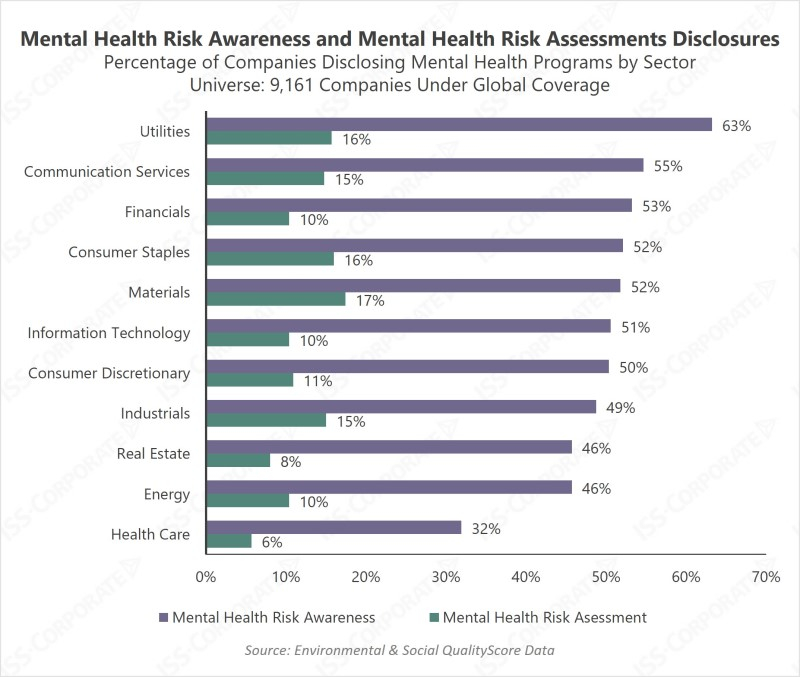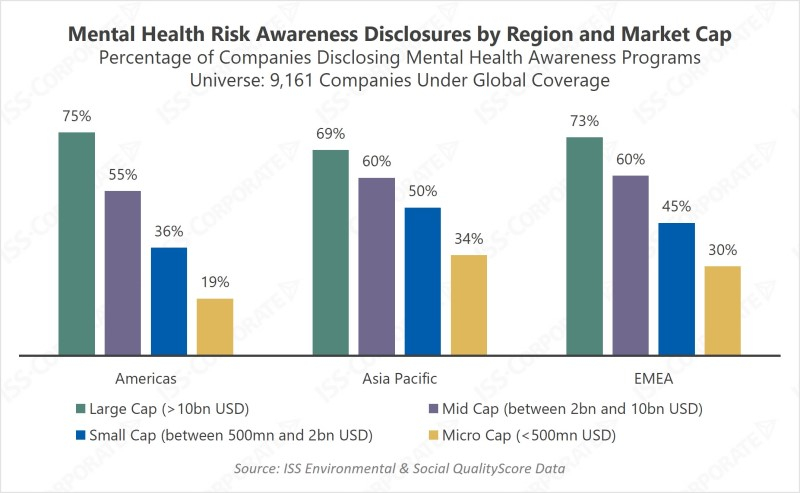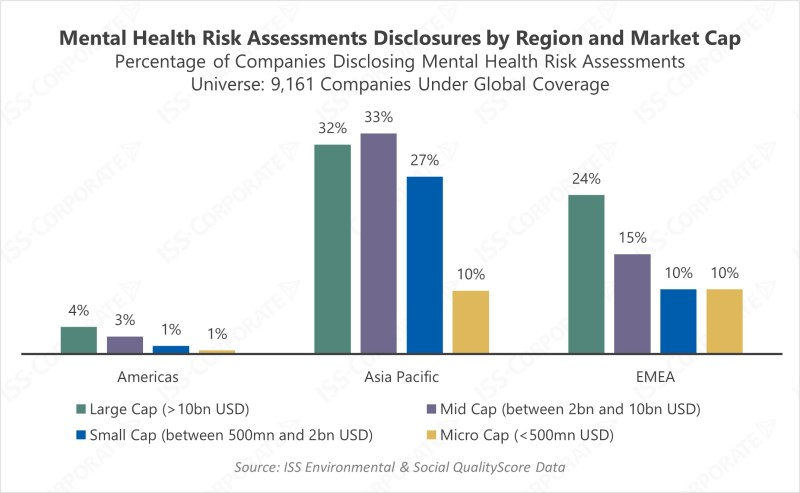
DATE PUBLISHED: January 13, 2025
The Evolving Landscape of Workplace Mental Health Management
A New Focus on Mental Health in the Workplace
Mental health in the workplace has become a subject of increased relevance within the corporate world. In the wake of the COVID-19 global pandemic, it has been well documented that poor mental health in the workplace can lead to high rates of burnout, turnover, and sick leave. The American Psychiatric Association estimates that depression leads to a 35% reduction in productivity, contributing to a loss of $210.5 billion a year to the U.S. economy due to its associated medical costs and absenteeism.
The link between employees’ mental health and company performance is also reflected in the latest sustainability reporting standards. The EU’s Corporate Sustainability Reporting Directive (CSRD) includes reporting requirements on the topic of Health and Safety specifically regarding work-related injury and work-related illness metrics. CSRD’s European Sustainability Reporting Standards (ESRS) provide guidance that includes mental illness in the definitions of work-related injury and work-related ill health. Additionally, the ESRS guidance also states that “the undertaking shall, at a minimum, include in its disclosures those cases outlined in the ILO List of Occupational Diseases.” The International Labor Organization (ILO) List of Occupational Diseases includes mental and behavioral disorders where there is a direct link between work-related activities and the contracted mental or behavioral disorder. Therefore, if company operations involve activities that can lead to mental health concerns, the relevant outcomes will need to be identified and reported in disclosures. Following the release of the International Financial Reporting Standards’ (IFRS) draft proposal on the Sustainability Disclosure Standards, several expert responses request the inclusion of disclosure standards covering mental health.
Companies are enhancing their focus on workplace mental health through awareness programs and trainings. However, further progress is needed to develop more systematic approaches for assessing and managing associated risks.
Managing Mental Health Through Risk Assessments and Awareness
From a business perspective, promoting awareness and conducting mental health risk assessments is an effective way to manage mental health risks. According to the World Health Organization (WHO), promoting mental health awareness in the workplace should focus on strengthening capacities to recognize and act on work-related mental health concerns. This can be done through awareness campaigns and mental health trainings. The WHO also recommends companies perform mental health risk assessments as part of an action plan to help identify, assess, and manage workplace risks. Such risk assessments, for instance, can be conducted as part of a company’s employee engagement survey through questions related to mental health, stress levels, and work-life balance.
ISS-Corporate reviewed corporate disclosure data regarding efforts to promote mental health awareness and conduct mental health risk assessments within organizations. Among publicly traded companies, many companies disclose mental health awareness initiatives, led by sectors like Utilities and Communication Services (with 63% and 55% of companies in each sector reporting on these efforts, respectively). However, the disclosure of formal mental health risk assessments remains significantly less common, ranging from 6% of companies in the Healthcare sector to 17% in the Materials sector. This disparity suggests that, while organizations increasingly recognize the importance of managing potential mental health risks, few of them have introduced mechanisms to systematically identify and address them. High-risk sectors, such as those with physically demanding or high-stress environments, are particularly underrepresented in disclosing mental health risk assessments. Closing this gap by integrating mental health risk assessments into human capital management strategies could be helpful to effectively address mental health challenges.

Disparities in corporate disclosures of mental health risk assessments and awareness are evident across regions and among companies of different market capitalizations. The Asia Pacific region demonstrates the highest level of disclosure related to mental health risk assessments, particularly among large cap companies, while EMEA and the Americas show higher levels of disclosure related mental health awareness. Across all regions and market capitalizations, disclosures on mental health awareness efforts are substantially higher than for risk assessments, highlighting the same gap identified across sectors between recognizing risks and actively assessing them. These findings potentially underscore a broader implementation gap in mental health corporate programs, emphasizing the need for resource support and capacity building.


Common Practices in Mental Health Management
Beyond promoting mental health awareness and developing a mental health risk assessment, companies can complement their programs with additional actions to address mental health risks. Some common corporate practices related mental health in the workplace may include the following:
- Providing employees access to mental health support and return-to-work programs, enabling them to seek out interventions earlier and return to work better prepared to succeed when ready.
- Establishing open feedback channels and workload management measures for affected employees can help to prevent mental health risks and foster psychologically safe work environments by encouraging employees to share their concerns.
- Promoting the use of vacation days can help employees take time off, avoiding the risk of burnout and fostering a guilt-free approach to rest.
- Implementing and supporting policies and programs related to diversity, equity, and inclusion can help to address the intersectional aspects of mental health challenges in the workplace.

